Exercise and Endorphins
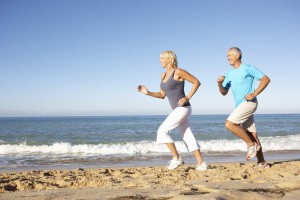 Feeling too grumpy or stressed out to exercise? Think again.
Feeling too grumpy or stressed out to exercise? Think again.
A little exercise can go a long way in reducing stress and making you feel good, along with its many other health benefits, like improving/maintaining physical fitness, preventing disease and treating symptoms.
Life is complicated. We are all busy with our own personal challenges and to-do lists. Not to mention the winter months, which can make even the hardiest New Englander want to curl up into a ball and stay in bed until spring finally arrives. But, as tempting as that sounds, it’s not likely to improve your mood at all. If you’re feeling down, resist the urge to mope and get moving.
Studies have shown that moderate to intense exercise can help…
- Minimize stress or improve ability to handle stressful situations
- Minimize anxiety and reduce of depression
- Improve self-esteem and perception of self
- Improve sleep patterns and hence energy during awake hours
For those interested in the science behind it, when your body is subjected to certain stimuli (including exercise) your hypothalamus calls for the release of endorphins, and the cells in your body that contain them respond. When endorphins lock into special receptor cells, they block the transmission of pain signals and also produce feelings of euphoria. But endorphins can’t do it alone…. exercise also raises levels of other mood-boosting chemicals like serotonin, dopamine and norepinephrine. The combination of endorphins and these other neurotransmitters produces and effect often referred to as “the runners high”.
In reflecting back on my time as a distance runner, I remember saying many times that it wasn’t always the act of running that got me out there day after day – but rather, the tremendous feeling that I got after my run that had such a positive impact on my outlook. But you don’t have to be a runner to enjoy the benefit of the runners high….just 30 minutes of physical activity can elicit this effect on the body and improve our mood on a chemical level.
 How else can it affect us?
How else can it affect us?
During a fast-paced tennis match or an intense kickboxing class, you’ll find that you concentrate more on your body’s movements than on the things that are irritating you or stressing you out. Redirecting your focus can help calm and clear your mind. This is referred to as “Active Relaxation” or the capacity to focus on rhythmic motion that can produce a relaxation response within the body.
By reducing our levels of stress, anxiety and depression, we can also sleep better at night, thus improving our energy during our awake hours and reducing irritability and depression often associated with inadequate sleep. How to get started? Consult your doctor or an exercise professional if you’re new to exercise or have health concerns. Safety first! Start with small, manageable goals and choose an activity that you enjoy. Exercise shouldn’t feel like a chore. Then make room in your schedule! Make your health a priority and set aside time each day to focus on you. You’ll be glad you did.
Jaclyn Chadbourne, MA is a Clinical Exercise Physiologist and Principal, Director of Research and Development – Universal Medical Technology, LLC and United Medical Gym, Inc in South Portland, ME. With a passion for sustainable healthy living and desire to advocate for patient-centered care, Jaclyn works to help support community resources for all special populations and to implement and oversee clinical protocols.
References
http://www.nbcnews.com/id/18043835/ns/health-fitness/t/getting-high-exercise/#.UwJ-wvldXtI
http://www.mayoclinic.org/healthy-living/stress-management/in-depth/exercise-and-stress/art-20044469
http://www.webmd.com/fitness-exercise/features/runners-high-is-it-for-real


 The studies concerned with the effect of Tai Chi on
The studies concerned with the effect of Tai Chi on 
 ften when we hear the term “fitness” – we automatically think of our physical health. Being mentally fit is equally as important. Cognitive fitness is a state of optimized ability to reason, remember, learn, plan and adapt that is enhanced by certain attitudes, lifestyle choices, and exercises. Better cognitive fitness translates into the ability to make better decisions, solve problems, and deal with stress and change. Neurogenesis is the process of developing new chemical messengers called neurons in the brain. This process can be profoundly affected by how you live your life. Here are eight strategies to help you facilitate the process of neurogenesis and have optimal cognitive functioning:
ften when we hear the term “fitness” – we automatically think of our physical health. Being mentally fit is equally as important. Cognitive fitness is a state of optimized ability to reason, remember, learn, plan and adapt that is enhanced by certain attitudes, lifestyle choices, and exercises. Better cognitive fitness translates into the ability to make better decisions, solve problems, and deal with stress and change. Neurogenesis is the process of developing new chemical messengers called neurons in the brain. This process can be profoundly affected by how you live your life. Here are eight strategies to help you facilitate the process of neurogenesis and have optimal cognitive functioning: Eat Specific Healthy Foods: Food plays a vital role in the health and proper functioning of the brain. Strive to eat real, whole foods such as fruit, vegetables, whole grains and lean meats – and drink eight 8oz bottles of water each day to keep brain cells hydrated. Apples, avocados, blueberries, unsalted nuts, broccoli and brown rice are great food choices for brain health.
Eat Specific Healthy Foods: Food plays a vital role in the health and proper functioning of the brain. Strive to eat real, whole foods such as fruit, vegetables, whole grains and lean meats – and drink eight 8oz bottles of water each day to keep brain cells hydrated. Apples, avocados, blueberries, unsalted nuts, broccoli and brown rice are great food choices for brain health.
 The PHIT Act (Personal Health Investment Today) H.R. 1218 (U.S. House of Representatives) & S.2218 (U.S. Senate) is pending legislation that expands the IRS definition of a medical expense to include physical activity as a form of prevention. The practical impact of this definitional change would allow consumers to use their pre-tax medical accounts (HSAs & FSAs) on physical activity expenses to promote healthy lifestyles. The PHIT Act is an innovative concept that helps address two major Congressional concerns: (1) rising health care costs (2) the budget deficit. The rise in sedentary lifestyles is a major contributor to higher obesity rates and an increased incidence of expensive, preventable chronic illnesses. The PHIT Act will help reverse the ‘Inactivity Pandemic’ by providing an economic incentive to invest in physical activity. If enacted, physical activity expenses could be reimbursed using money in pre-tax medical accounts.
The PHIT Act (Personal Health Investment Today) H.R. 1218 (U.S. House of Representatives) & S.2218 (U.S. Senate) is pending legislation that expands the IRS definition of a medical expense to include physical activity as a form of prevention. The practical impact of this definitional change would allow consumers to use their pre-tax medical accounts (HSAs & FSAs) on physical activity expenses to promote healthy lifestyles. The PHIT Act is an innovative concept that helps address two major Congressional concerns: (1) rising health care costs (2) the budget deficit. The rise in sedentary lifestyles is a major contributor to higher obesity rates and an increased incidence of expensive, preventable chronic illnesses. The PHIT Act will help reverse the ‘Inactivity Pandemic’ by providing an economic incentive to invest in physical activity. If enacted, physical activity expenses could be reimbursed using money in pre-tax medical accounts. HOW WOULD THE PHIT ACT WORK?
HOW WOULD THE PHIT ACT WORK?
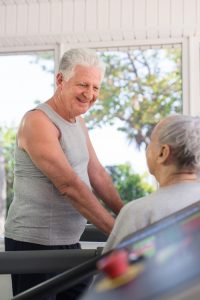

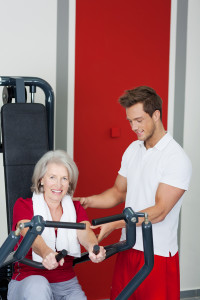 In summary
In summary


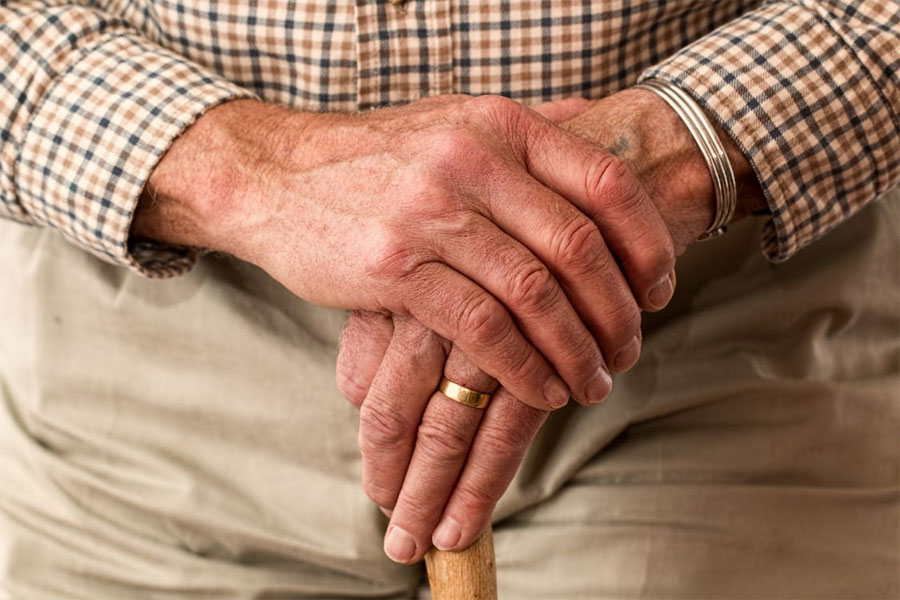
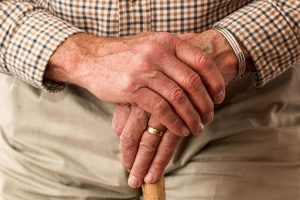 I am not concerned with entering into the conversation about who is elderly, or these new hip ideas about saying 100 years young (this expression can be equally oppressive as the objectification of “the elderly”).
I am not concerned with entering into the conversation about who is elderly, or these new hip ideas about saying 100 years young (this expression can be equally oppressive as the objectification of “the elderly”). As well-intentioned measures are created to protect people who are elderly from abuse, flu and fraud, sometimes these very policies further objectify the people they are intending to help. Headlines read: “How to care for the elderly” Really? There’s a one-size-fits-all approach for caring? I didn’t realize all members of the elderly needed caring for. According to Education First, world leaders in International Education since 1965,“Use the [emphasis in original] with adjectives to refer to a whole group of people.” One of three examples given on their website is: “The elderly require special attention”. How would our world be if we offered special attention to everyone?
As well-intentioned measures are created to protect people who are elderly from abuse, flu and fraud, sometimes these very policies further objectify the people they are intending to help. Headlines read: “How to care for the elderly” Really? There’s a one-size-fits-all approach for caring? I didn’t realize all members of the elderly needed caring for. According to Education First, world leaders in International Education since 1965,“Use the [emphasis in original] with adjectives to refer to a whole group of people.” One of three examples given on their website is: “The elderly require special attention”. How would our world be if we offered special attention to everyone?


